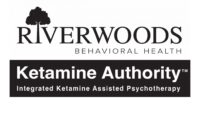Resources and Relevant Studies
Ketamine for the acute treatment of severe suicidal ideation: double blind, randomised placebo controlled trial
This study confirmed in a large randomised controlled trial that ketamine is a fast acting, efficient treatment of suicidal ideation. In this population at very high suicidal risk, 63.0% reached full remission at three days after two infusions in the ketamine group in comparison with 31.6% in the placebo group. This effect was rapid, with 43.8% remission only two hours after the first infusion versus 7.3% in the placebo group. Ketamine was well tolerated without severe side effects. Main side effects, including sedation,
depersonalization/derealisation, nausea, and dizziness, were of short duration and occurred in around 10% or fewer participants. In addition, the effect persisted at six weeks in 69.5% of individuals treated with ketamine (versus 56.3% in those receiving placebo).
Reference:
https://www.bmj.com/content/376/bmj-2021-067194
Ketamine Rapidly Improves Cognitive Function Making Those in Suicidal Crisis Less Likely to Harm Themselve
Participants in the study who responded positively to the ketamine treatment continued to do well for up to six weeks after they were given an initial infusion in conjunction with other antidepressants that were tailored to the needs of each specific patient.
Suicide is the third leading cause of death for those ages 10-34 and the 10th leading cause of death overall in the United States. Dr. Mann said since 90 percent of those who die by suicide in the U.S. have a psychiatric illness and 60 percent of those people suffer a major depressive episode before a suicide attempt, it would be a major benefit if ketamine could be used to lessen suicidal risk.
Approved by the Food and Drug Administration for medical use in 1970, ketamine was first used as an anesthetic to treat injured soldiers during in the Vietnam War, but it soon became notorious as a party drug, nicknamed Special K, used illicitly in clubs for its hallucinogenic and dissociative effects.
But research into the drug's potential as a treatment for depression and antidote to suicidal thoughts continued, and in 2019 the FDA approved intra-nasal spray esketamine, derived from ketamine, to be used in conjunction with an oral depressant in adults with treatment-resistant depression.
Ketamine is clearly changing functioning of important neurotransmitter systems in many key areas of the brain, and further study of ketamine and other drugs like it could lead to new mental health treatments, the researchers said. However, more research is needed to determine why some people respond to ketamine—which alters the release of glutamate that regulates much of the nervous system and helps the brain rewire itself by creating new connections and pathways—and other patients do not.
Since neuropsychological risks of long-term repeated ketamine treatments are unknown, researchers said further study is needed. Designing rapid-acting antidepressants like ketamine without the side effects of “tripping” or out-of-body experiences that could be taken in pill form at home instead of in a clinical setting, is also important, Mann said.
Reference:
https://www.columbiapsychiatry.org/news/ketamine-rapidly-improves-cognitive-function-making-those-suicidal-crisis-less-likely-harm-themselves

